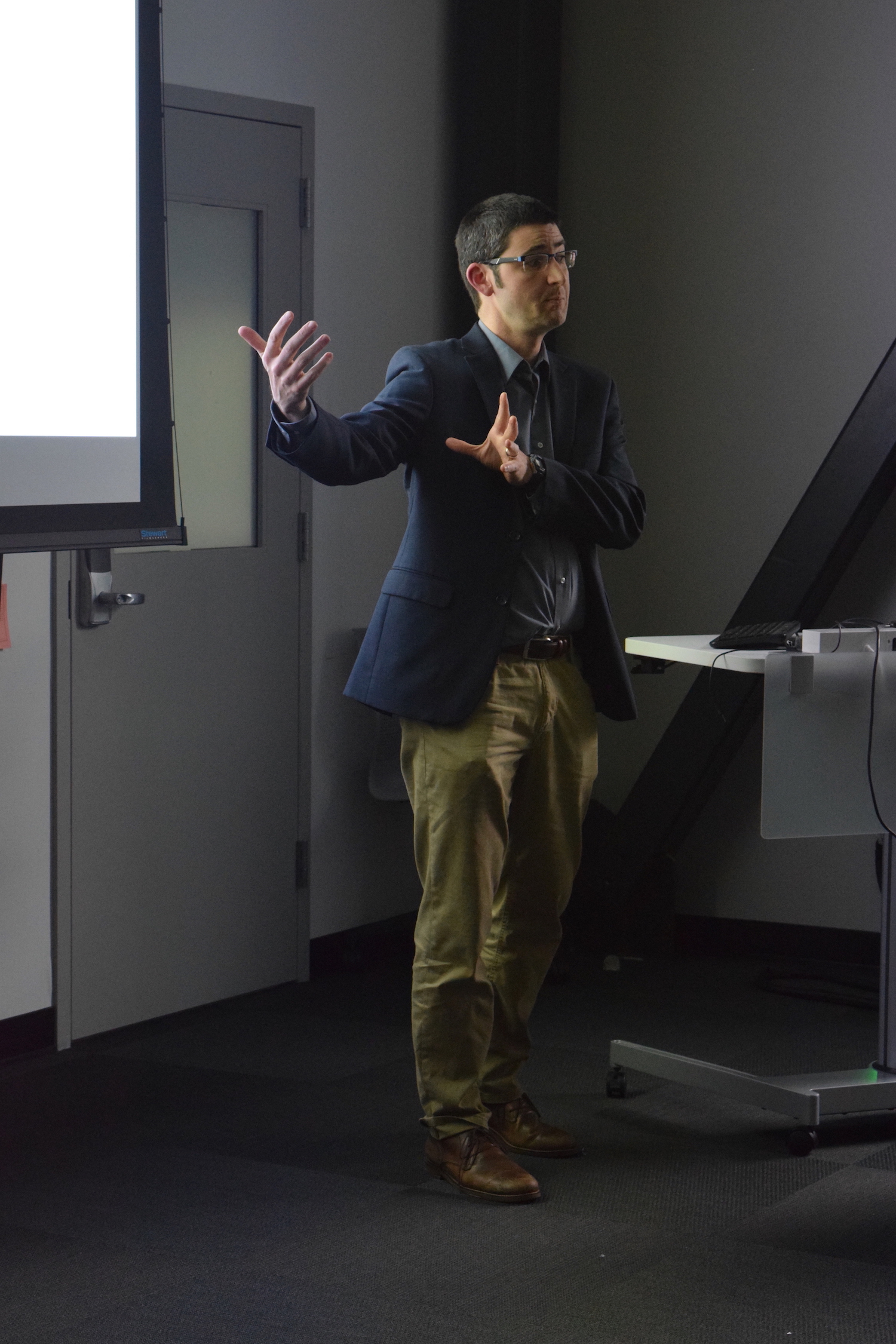Lobbyist talks importance of bipartisan climate legislation
September 27, 2019
 Isabel Alexander
Isabel AlexanderOn Wednesday, Danny Richter, vice president of government affairs for Citizens’ Climate Lobby, an international environmental lobbying group, held a lecture in the Roux Center for the Environment about his proposals for solutions to climate change which center on implementing a carbon tax.
Citizens Climate Lobby works with members of Congress on both sides of the aisle to reach compromises and pass bipartisan legislation addressing climate change.
The lecture was funded by the Climate Action Speaker Initiative, created through the donations of John Flinn ’05 and Luke Flinn ’10. This fund is meant to connect the College’s climate action work with what students are learning in the classroom. Richter’s visit to campus was sponsored by the Office of Sustainability, the Environmental Studies program and Career Exploration and Development.
Richter, who has been integral in three major bipartisan bills that advocate for a carbon tax, wanted to familiarize people with the current bipartisan bills for the U.S. Congress and to create an awareness of some of the diverse political considerations surrounding this particular moment in the United States. He also wanted his lecture to convey that there is a strong expert preference for carbon pricing.
“What economists really like about carbon prices in general is efficiency and getting the desired outcome [at the] lowest cost. This is what Congress really cares about,” Richter said.
Noal Leonetti ’22, who attended the lecture, agreed with the basis of Richter’s argument.
“We do need more bipartisan work on this issue as well as the states stepping up,” Leonetti said.
Holden Turner ’20, on the other hand, appreciates the effort Richter puts into negotiating the ecosystem of lobbying on Capitol Hill, but is more weary.
“It’s too easy to consider carbon taxes as a silver bullet for climate action, especially after an expert describes the possibilities so thoroughly,” Turner said. “I came away from Dr. Richter’s talk seeing lobbying for carbon pricing as just one of many avenues forward. We can’t put all of our eggs in one basket.”
After former Bowdoin faculty member Michael Jones recommended Richter to Keisha Payson, the assistant director of sustainability, she reached out to Richter in June and orchestrated his visit.
When choosing a speaker for campus, Payson wanted to invite someone who advocated for climate change actions that have swift payoffs, such as LED lighting projects that could pay for themselves within two years. She felt that Richter advocates for a quicker approach to long term solutions that would be more financially affordable.
“It’s getting more challenging because the investments we need to make don’t have such a quick payback,” said Payson. “[If] there was a carbon tax, [it] would level that playing field between the various energy sources: [fossil] fuels versus renewable.”
When asked about how a current carbon tax bill fits into the Green New Deal, Richter explained the deal’s flaws.
Bipartisan support is needed to pass such a deal, and Richter claims the Green New Deal has no components that appeal to Republicans. He added that given the inclusion of polarizing issues such as universal health care and immigration in the deal, it may be too sweeping to pass. He suggests that the Green New Deal solely focus on addressing climate change.
Samara Nassor ’22, who attended the dinner, wonders how plausible such action will be.
“I was just asking myself, how are we going to get there as fast as we need to?” Nassor said. “Consequences for climate change can come tomorrow.”

Comments
Before submitting a comment, please review our comment policy. Some key points from the policy: